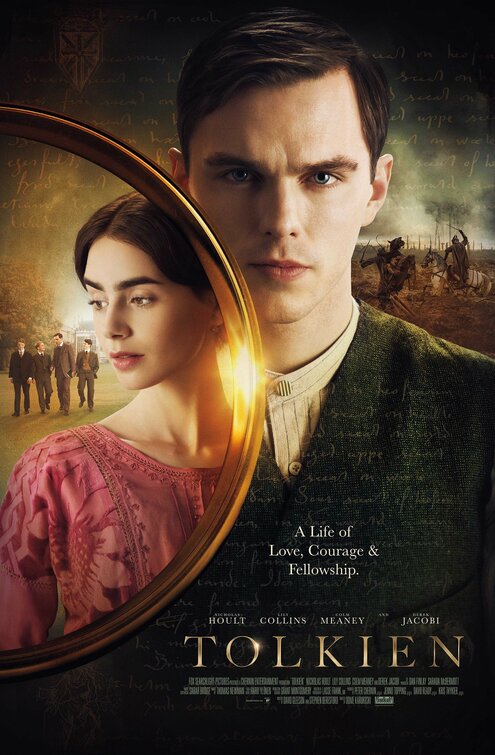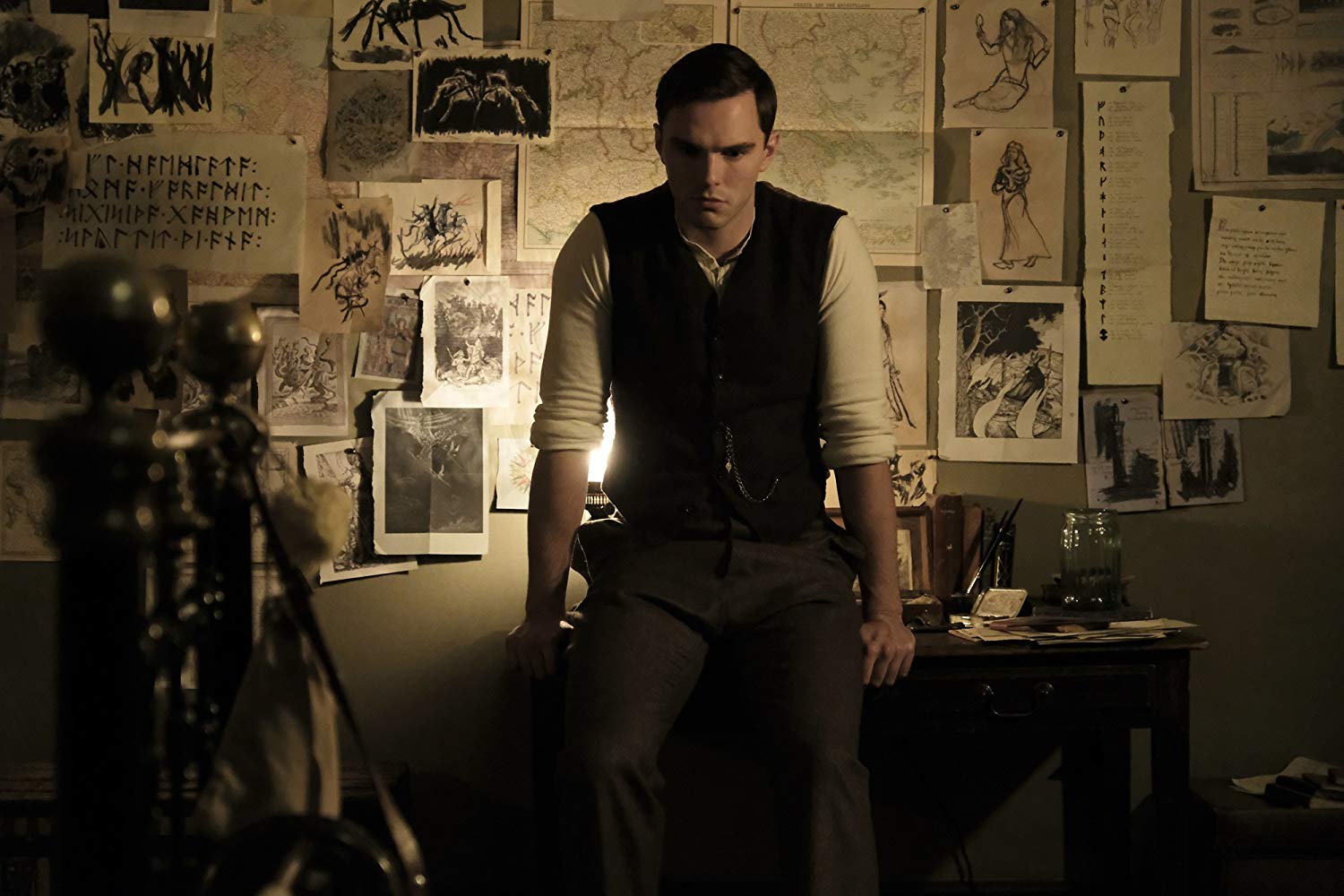by Chris Feil
 Inert biopics line the multiplex like gravestones, but seldom are they as dead on arrival as Tolkien. Depicting the author and philologist’s young adulthood and experience in World War I before creating The Hobbit, Dome Karukoski’s film isn’t just another dull cookie cutter telling of a famous figure. It’s perhaps a new gold standard of “Wikipedia entry as high school book report as prestige picture” malaise, the low bar to compare passable boring films. “At least it’s not Tolkien.”
Inert biopics line the multiplex like gravestones, but seldom are they as dead on arrival as Tolkien. Depicting the author and philologist’s young adulthood and experience in World War I before creating The Hobbit, Dome Karukoski’s film isn’t just another dull cookie cutter telling of a famous figure. It’s perhaps a new gold standard of “Wikipedia entry as high school book report as prestige picture” malaise, the low bar to compare passable boring films. “At least it’s not Tolkien.”
Nicholas Hoult stars as the eponymoius J.R.R. Tolkien, struggling to overcome his social and fiscal limitations while at Oxford. He is part of a foursome of tightly knit male friends and artists, each with class stature above his own. Meanwhile he sacrifices his love for fellow orphan Edith Bratt (Lily Collins) in order to secure his future. The outbreak of the war casts all of this asunder, serving Tolkien blows to the body and spirit that ultimately serve his coming creative landmarks.
Aesthetically, Tolkien has the cliche gold and sage palette sheen of a million other biopics while still feeling like cinematic mud. Whereas other period dramas of this year have shown signs of life despite a straightforward approach to their era detail (such as the fragrantly stuffy brilliance Peterloo or even the frustratingly isolating austerity of Sunset), Tolkien feels about as tactile as a photocopy. At its best the film is rushing disinterestedly through Tolkien’s post-war depression and creative block, at worst Hoult and Collins mutter “cellar door” at each other two dozen times too many in a single scene.
The result is a film that is the wettest blanket on the most humid day, a funeral dirge that can’t be saved by either Hoult’s typically versatile charms or its Middle Earth-inspired stylistic flourishes. Instead the film’s wartime visual references from the Lord of the Rings saga are a nakedly cynical attempt to cash in on audience enthusiasm for Tolkien’s creations - and about a decade too late, at that. There’s remarkably little depth particularly to the battle scenes, making for a tie-dye effect of rip-offs of biopics, war films, and obviously Peter Jackson. Ultimately it blends into one mess that’s remarkably detached from the man it’s eulogizing.

Nor does the intent to draw parallels from Tolkien’s [pause for dramatic effect... is the audience still here... one more second] fellowship with his childhood buddies to that of his hobbits come across as more than broski boredom. For even those in the audience unmoved by his Middle Earth, it feels like Tolkien is reducing its subject’s creations down to something gloopy and trite. On top of that, it’s lazy in doing so, as if the author was inspired by the most pedestrian aspects of his life to create his characters. In turn, this film has about as deep a relationship with the films of Peter Jackson, let alone its subject’s text.
So remarkably toneless that to call it “somber” feels like a stretch, Tolkien also makes the man behind its story anonymous beyond his circumstance. By reducing him to the sum of what happened to him, this aspect of the film is uniquely frustrating for how it goes against what the author expressed about our humanity. Not only is the whole a slog but its intentions feel absentminded if we’re being gracious, and suspicious if we’re being honest.
Grade: D+